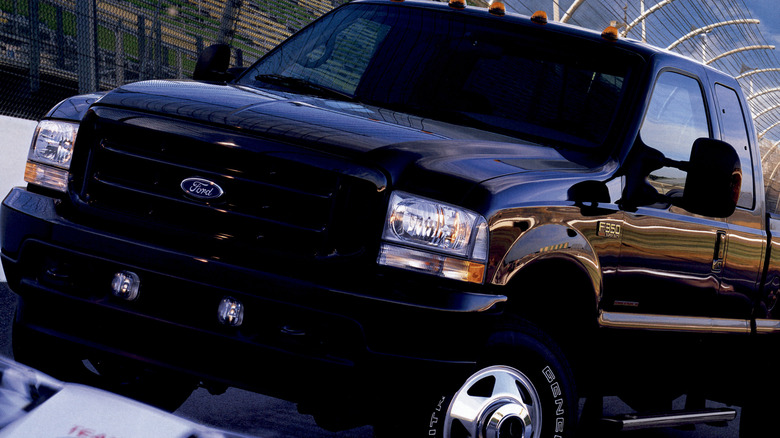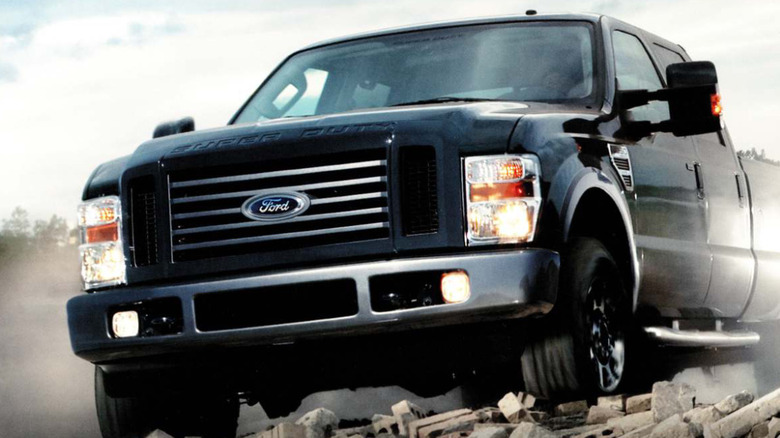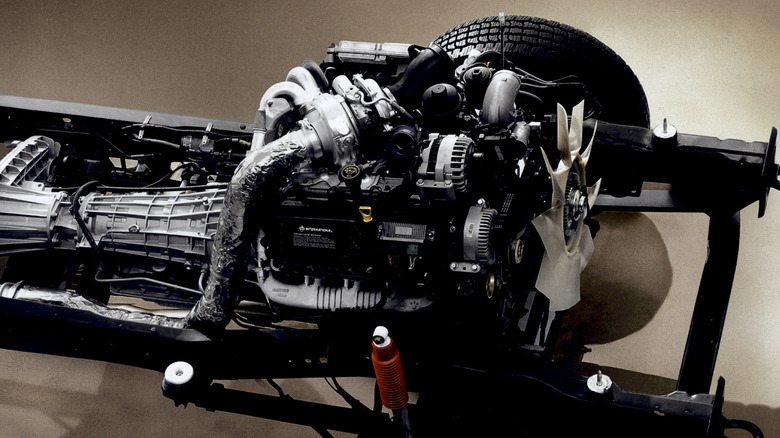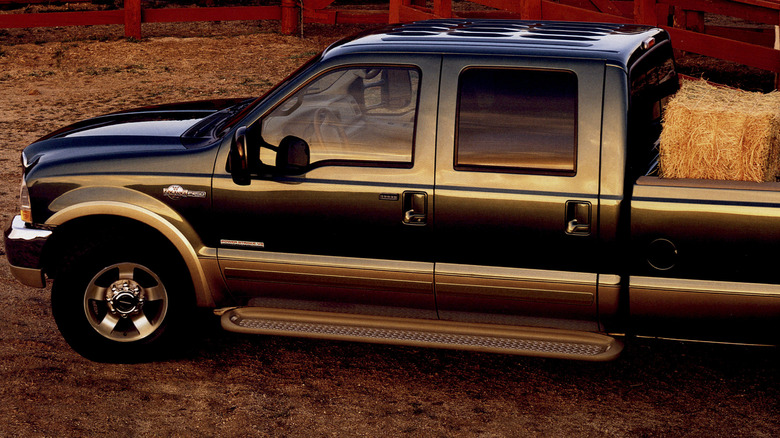The Best Years For Ford's V10 Triton Engine (And Which To Avoid)
The Ford V10 Triton, with its 6.8 liters of displacement, was a powerhouse when it hit the market in 1997. The first iteration was a 6.8L with 275 hp and 425 lb-ft of torque. This made the powerplant a substantial upgrade option for the first Ford F-Series Super Duty truck. But it wasn't just for trucks; it also found its way into RVs and buses.
For many, the V10 Triton is looked back on as a reliable powerplant. But not all of its iterations were created equal. Some had defects that made them prone to complications. However, Ford altered the engine during its lifetime to correct some of these issues.
There are still V10 Tritons on the road today, despite it not being one of Ford's most powerful engines. You may even be in the market for one yourself. This article examines the life of the V10 Triton to determine which iterations were the most reliable and which ones have issues to look out for to aid you if you are in the market for a V10 Triton today.
The years Ford got it right
It's impossible to point to one or multiple years and proclaim them the best years of the V10 Triton. That's because not every engine is entirely identical. Many factors can also impact an engine's reliability after it comes off the lot. Proper maintenance, care, and using quality fluids can increase the lifespan of a V10 Triton. Reports of these engines running for hundreds of thousands of miles under the right conditions exist.
Many consumers point to any V10 Triton produced from 2005 onward as the most reliable model year for the powerplant. In 2005, The V10 Triton adopted a three-valve setup to replace the two-valve configuration, which resulted in 362 horsepower and 460 lb-ft of torque. With advancements in fuel efficiency and performance, the powerplant continued to evolve in the years after.
But it wasn't all just upgrades that came with later iterations of the V10 Triton. Ford attempted to fix defects that previously caused owners frustration-induced headaches. Keep in mind that this list outlines common customer complaints about the powerplant. This does not mean all the engines produced during a respective period are good or bad. It just indicates that some may be susceptible to issues that others are not.
Spark plug woes
In the early years of the V10 Triton, there were spark plug issues. Many owners of a 1997-2002 model V10 Triton encountered a situation where they would randomly hear a loud popping or clicking sound followed by a sudden loss of power. What was happening was that the spark plugs were being abruptly ejected out of the cylinder head. This ejection could cause damage to any engine component that got in his path, potentially racking up a sizable repair bill.
But that's not the only issue with the spark plugs. There were also reports that the spark plugs could get stuck in the cylinder head. Although the spark plug issues were not fun for the unfortunate owner who experienced them, the NHTSA determined in a 2005 report that the defects were not a major safety issue. The agency reported that out of the 474 complaints, only a small fraction noted safety-related complications from the incident. According to reports, Ford fixed the design flaw for post-2002 vehicles.
Other reported issues
The V10 Triton's exhaust manifold has caused some problems for customers—not the manifold itself, but the bolts that keep it secure. There are multiple reports of the manifold bolts on early 2000 model-year engines rusting away. One customer even looked under their vehicle and found over half the bolts missing. This can cause an exhaust leak, which can be dangerous. And repairing the issue is not that easy, with some customers reporting that it costs over $1,000 to get fixed.
Another common issue among owners of an early 2000s V10 Triton is the Positive Crankcase Ventilation (PCV) cracking. Some owners noted that the cracks would result in oil leaks and other complications. One customer reported that their F350 lost 3 quarts of oil over 3,000 miles, potentially due to PCV cracking. A cracked PCV can also cause oil contamination and increased emissions. So, if you are in the market to buy a V10 Triton, check for PCV issues before throwing out an offer.



